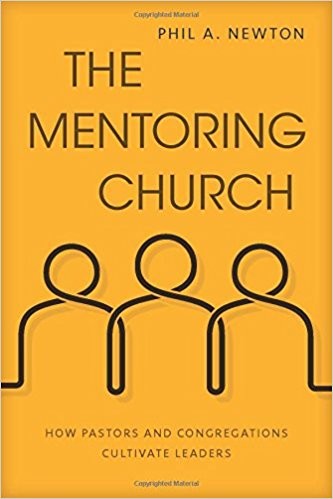
“With-ness.” That rather odd-sounding term coined by Günther Krallmann describes how Jesus trained the Twelve. He was with them; they were with him. In the process of with-ness, they began to mature in their understanding of his kingdom message and work. Through with-ness Jesus prepared the disciples to take the reins of gospel ministry after his resurrection. Every difficult encounter, act of endurance, authority in teaching, insight in leadership, and wisdom in gospel application arose out of the three years of with-ness that Jesus invested in his disciples.
Without a complicated process, this is what Jesus’s approach to mentoring looks like. The with-ness took place in the small community of disciples so that in the crucible of relationships—sometimes annoying, other times challenging, never boring—Jesus shaped his disciples to lead his church in the decades to come. He never pursued mentoring in a sterile atmosphere. Always in the messiness of real life, he taught, trained, honed, and prepared his followers to lead the church in its ministry and mission.
Two components proved necessary in Jesus preparing his disciples for future ministry. First, Jesus modeled life and ministry for them. He taught them truth and showed how that truth worked out in the realities of life. He instructed them in love and service by words and actions. He showed generosity, forgiveness, and acceptance of the weak, vulnerable, and needy. He taught them how to pray and modeled prayer. They listened to the way that he interpreted Scripture, watched him preach to the crowds, and learned to preach the gospel of the kingdom. They learned humility as he washed their feet and, more importantly, went to the cross to bear their sins.
Second, Jesus trained the disciples in the intricate web of relationships. Their messy lives with all the baggage of family, conflicting personalities, sin patterns, and religious misunderstanding proved to be the atmosphere that he chose for shaping them. They wouldn’t learn to forgive unless they learned to live with those that rubbed them the wrong way. They wouldn’t learn to serve unless they could learn to gladly serve their fellow disciples, even the ones that sometimes annoyed them. They wouldn’t learn to lead unless they could learn to walk humbly before their brothers. They wouldn’t learn to love unless they could selflessly surmount the obstacles to love in community.
Mentoring needs a mentor who will pour into the lives of the trainees. But mentoring also needs a community—a church—where people are covenanted together as followers of Christ and trainees are shaped to lead, shepherd, and disciple others. Such a community, if it’s maturing in health, has a profound impact on those trained by faithful pastors and elders. Trainees begin to see the beauty of personalities and backgrounds, strengths and weaknesses working together toward a healthy body of Christ. Even as the body matures, struggles still remain, believers wrestle with sin, families encounter trials, and disciples go through lulls. In this setting, as mentors teach, model, instruct, and train, the realities of life in Christ within the congregation hone rising leaders’ character, humility, and skills for ministry.
Yes, with-ness by faithful mentors and healthy congregations shape young leaders to serve as elders, teachers, deacons, missionaries, and pastors. That’s how Jesus trained his disciples. Let’s follow his model.
Phil A. Newton explores biblical discipleship further in his new book, The Mentoring Church: How Pastors and Congregations Cultivate Leaders (Kregel Publications 2017). He serves as pastor at South Woods Baptist Church in Memphis, Tennessee.



